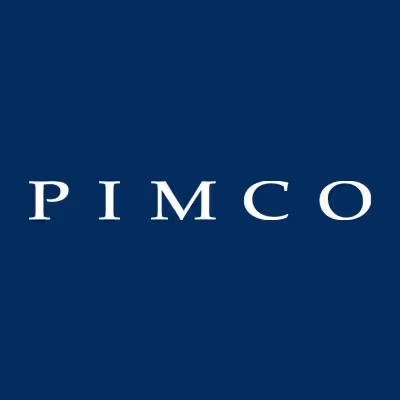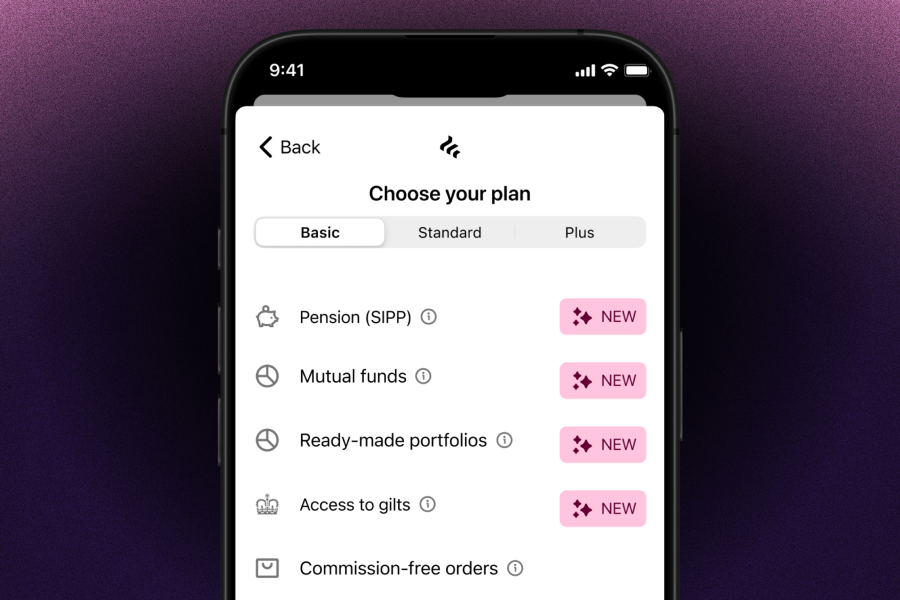Money market ETFs are here.
Introducing low-risk ETFs that track short-term interest rates, like the US fed funds rate.
What are money market funds?
Money market funds are low-risk investments that aim to protect your money while earning income from current interest rates.
Unlike many other funds that invest in stocks, money market funds opt for safer options like short-term government bonds, treasury bills, or certificates of deposit.
That’s why they’re often considered a good low-risk investment for any extra cash in your investment account.
While you might be tempted to keep a part of your portfolio as cash, that cash can end up being a drag on your performance. That risk is even greater during periods of high inflation, where the purchasing power of your uninvested cash will fall.
Money market funds can be a good choice if you want to counteract the potential of cash pulling down your overall returns. They might be a good place to park your cash held in an ISA or SIPP, because they can offer you a safer and more liquid investment as you wait for an opportunity to put that cash into the market.
Remember though, investing in a money market fund isn’t the same as putting your cash into a savings account. Money market funds are an investment, so as is the case with all investments, there’s no guarantee the fund’s value will go up. You may get back less than you invest, which wouldn’t occur in a savings account. And despite their low-risk strategy, money market funds can still be volatile during periods of market stress.
Money market funds on your app

Xtrackers $ Fed Rate Tracker (Acc.) - $XFFE
This passively managed money market fund is an exchange-traded fund (ETF). It aims to track the Federal Funds rate. This is the interest rate that US commercial banks charge each other for any overnight loans of their funds.<br><br>Essentially, this ETF is attempting to provide you with that same level of return, with any of its interest reinvested daily.

Lyxor £ Overnight Return (Acc.) - £CSH2
This actively-managed ETF aims to achieve short-term returns higher than SONIA, while offering low risk and low volatility.
Who’s this SONIA, you ask? Well, the better question might be what is SONIA.
SONIA stands for ‘Sterling Overnight Index Average’ and it's the rate UK banks lend money to each other overnight (similar to the Fed Funds rate in the US, mentioned above). Any income received by the fund is reinvested into the fund itself.

Lyxor $ Overnight Return (Acc.) - $SMTC
This money market fund aims to achieve short-term returns higher than the US Fed Funds rate.
It attempts to do so by investing in a portfolio of low-risk financial instruments and repurchase agreements (like debt). Any income received by the fund is reinvested.

Xtrackers £ SONIA tracker (Dist.) - £XSTR
This ETF seeks to track SONIA (remember that interest rate we discussed above)? It tries to replicate SONIA’s performance with a swap.
A swap is a financial agreement between two parties to exchange something. A swap is often used to manage risks or change interest rate terms. For example, one party may agree to pay a fixed interest rate in exchange for receiving a variable interest rate from the other party.
This fund aims to generate income while preserving and growing the original investment. Income received is distributed.

Lyxor $ Fed Rate Tracker (Acc.) - £FEDG
This passively managed ETF tracks the Fed Funds rate. Just like XSTR, FEDG tries to duplicate the Fed Funds rate with swaps.
Basically, it attempts to mimic the performance of a deposit if it were to earn the Fed Funds rate, with any interest being reinvested daily.

PIMCO £ Short Term Bonds (Dist.) - £QUID
Here’s another actively-managed ETF on the list. PIMCO’s money market fund invests in a diversified portfolio of GBP-denominated fixed-income securities, like government and corporate bonds.
As for any securities QUID invests in, these will all be ‘investment-grade’, which means they're considered lower risk. Though, they’d likely still be deemed higher risk than government debt, for comparison.
QUID’s investments all have relatively shorter maturities. Meaning, the debt it holds has an average maturity of less than one year, up to a maximum of three years. Shorter maturities mean that any debt it holds won’t last very long before being repaid. The shorter any debt’s duration is, the less likely it is to be affected by changes in interest rates.
This fund aims to generate income while preserving and growing your original investment. If it generates income, this will be distributed.

PIMCO $ Short Term Bonds (Dist.) - $MINT
Think of MINT as QUID’s American cousin. So instead of investing in UK-backed debt, MINT invests in US Dollar fixed-income securities.
It’s an actively managed ETF, and it also only invests in investment-grade securities with shorter maturities.
Similarly, this money market fund looks to create income while preserving and growing your original investment. Any income received is distributed.
What else should I know about money market funds?
A few last bits to bear in mind are that MMFs are ETFs, so there will be a spread between the price at which you can buy and sell. A wider spread can make it more difficult to buy or sell an MMF at your desired price. Some of these ETFs trade on the LSE but are listed in US Dollars, meaning that you’ll have to pay foreign exchange fees. They also all charge a management fee, so make sure you check out the Key Information Document (KID) before making an investment.
All that said, money market funds are a low-risk investment which might have a place in your portfolio. They’re a safer and more conservative choice for investors who want to have easy access to their money. They could also be a good alternative to keeping cash in a regular bank account because they can provide slightly higher returns. Though, with the possibility of a greater gain will come a higher risk than simply depositing your cash in a savings account. Before deciding to invest in a money market fund, be sure to consider your financial goals, risk appetite, and whether these investments are suitable for you.
This should not be read as personal investment advice and individual investors should make their own decisions or seek independent advice. This article has not been prepared in accordance with legal requirements designed to promote the independence of investment research and is considered a marketing communication.When you invest, your capital is at risk. The value of your portfolio can go down as well as up and you may get back less than you invest. Past performance is not a reliable indicator of future results.Freetrade is a trading name of Freetrade Limited, which is a member firm of the London Stock Exchange and is authorised and regulated by the Financial Conduct Authority. Registered in England and Wales (no. 09797821).

.avif)











